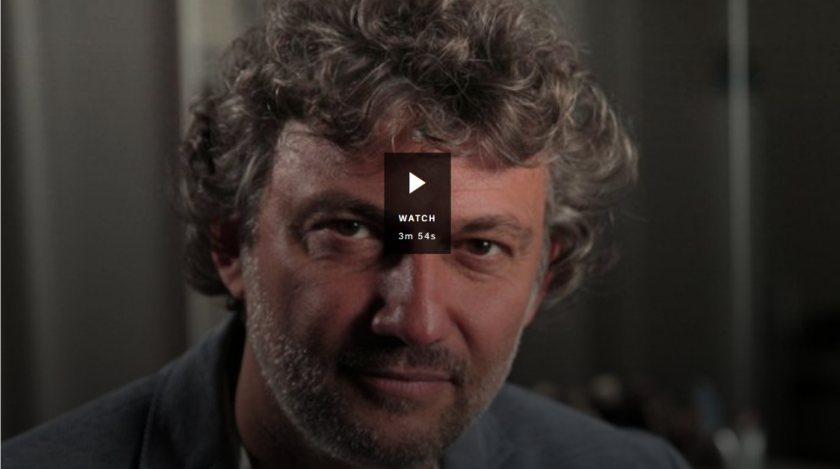|
|
|
|
|
|
|
|
|
ABC, 7 Aug 2019 |
|
| |
German tenor Jonas Kaufmann performs in Australia
|
 |
| |
| |
Transcript:
(Jonas Kaufmann rehearsing)
LAURA TINGLE, PRESENTER: Inside the Sydney Opera House, the world's most
famous opera singer is in rehearsal.
(Jonas Kaufmann rehearsing)
Jonas Kaufmann has built such a cult following, it has become an
occupational hazard.
(Jonas Kaufmann performing)
In this
2016 performance in Vienna, the audience interrupted his performance with
a full five minutes of applause.
(Audience applauding)
(Jonas Kaufmann rehearsing)
Now, Jonas Kaufmann returns to
Australia in the iconic opera, Andrea Chénier, set in the French
Revolution.
Jonas Kaufmann, welcome back to Australia.
JONAS
KAUFMANN, OPERA SINGER: Thank you.
LAURA TINGLE: What keeps
bringing you back here?
JONAS KAUFMANN: A long flight! (Laughter)
No, no. I'm kidding. I know that it's far, far away, but I have to say
I have been treated extremely well and from the first time here I felt
that it is a very enthusiastic audience.
LAURA TINGLE: Tell us a
little bit about the character you play in this opera and what the demands
of the role are.
JONAS KAUFMANN: It is difficult. It is very
difficult.
It is not only for the tenor difficult. So if you count
it right, I would say, it's three-and-a-half and maybe four arias, you
would say four arias plus two major duets.
(Jonas Kaufmann
rehearsing)
This is the challenge, you not need one good singer,
you need three sensational singers but I hope that one day it will be as
popular as Tosca because it feels like it is the one you want to sing
every day.
LAURA TINGLE: There has been this ongoing push to put
opera in modern settings. Is that continuing or has it reached a bit of a
zenith in Europe?
JONAS KAUFMANN: There is a certain amount of
modernity that this kind of music can cope with and if it is too much, it
is going to break its magic and when you talk about things like Andrea
Chénier, it has to be done in the French Revolution timeframe.
It
cannot be anywhere else. It doesn't make sense at all.
I believe
audience can make that step in saying, "Oh, wait a minute. This happened
back then and we still have it, we have to do something against it."
It is enough of a revolutionary flame in it. It doesn't need to be
destroyed.
(Jonas Kaufmann rehearsing)
LAURA TINGLE: The
world of opera hasn't been immune from the #MeToo movement. Opera heroines
often meet a pretty sticky end and some houses are going to extraordinary
lengths to turn that around.
What do you think of that?
JONAS KAUFMANN: Well, I think it is a tragedy is much more interesting
than happiness and musically, there is much more, many more colours let's
say, in music to describe sadness and tragedy and death and stuff like
that, maybe also jealousy than happy endings.
This love duet at the
very end which is facing death, facing the guillotine is quite
extraordinary because it's not sad at all.
It's complete joy. I
mean, they are both, it's pure ecstasy.
(Jonas Kaufmann rehearsing)
|
|
|
|
|
|